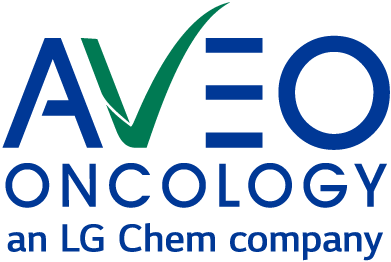April 4, 2006
AV-412 Preclinical Efficacy Data Presented at AACR 2006
– AV-412, a novel EGFR/HER2 kinase inhibitor, demonstrates potent anti-tumor activity against both Tarceva® and Iressa®-sensitive and resistant tumors –
– AV-412 holds promise as a broader-acting EFGR/HER2 inhibitor –
CAMBRIDGE, MA April 4, 2006 – AVEO Pharmaceuticals, Inc., a biopharmaceutical company focused on the discovery and development of novel cancer medicines, announced today that, in preclinical models, its anti-cancer compound AV-412 demonstrated potent anti-tumor activity against tumors that were sensitive to treatment with Tarceva® (erlotinib) and Iressa® (gefitinib). Importantly, AV-412 also demonstrated potent anti-tumor activity against tumors that were resistant to treatment with erlotinib and gefitinib.
The data was presented by Tsuyoshi Suzuki, Ph.D., Mitsubishi Pharma Corporation, at the American Association for Cancer Research (AACR) 2006 Annual Meeting in Washington, DC. In January 2006, AVEO acquired from Mitsubishi Pharma Corporation an exclusive license to develop and commercialize Mitsubishi’s novel multiple kinase inhibitor, MP-412 (AV-412), in all territories outside of Asia. Dr. Suzuki presented the following abstract: “MP-412, a dual EGFR/HER2 tyrosine kinase inhibitor shows anti-tumor activity against both Erlotinib/Gefitinib-sensitive and resistant EGFR mutations in human lung cancer xenograft models” (Abstract #4030).
In preclinical studies, AV-412, erlotinib and gefitinib were evaluated independently for cellular phosphorylation of benchmark proteins EGFR, Akt and MAPK in non-small cell lung cancer (NSCLC) cell lines. AV-412, erlotinib and gefitinib were also evaluated independently for anti-tumor effects in nude mice.
In H1650 (EGFR delE746-A750 mutant) non-small cell lung cancer tumors, the anti-tumor effect of AV-412 at 75 or 150mg, dosed daily for 14 days, was comparable to 225mg gefitinib and 100mg erlotinib. Similar dosing of AV-412 also showed potent anti-tumor effects in H1975 (EGFR L858R+T790M mutant) non-small cell lung cancer tumors, which were resistant to treatment with 225 mg gefitinib and 100 mg erlotinib.
Tuan Ha-Ngoc, President and CEO of AVEO, said, “As we move our first novel oncology product into the clinic, the data presented indicates that AV-412 may be useful in treating a broad array of EGFR-mediated solid tumors, including non-small cell lung cancer. Importantly, AV-412 appears to have activity against tumors which are resistant to treatment with currently available drugs. Coupled with these findings, AVEO’s proprietary Human Response Prediction™ platform will help us to better identify those patients who are more likely to respond to AV-412. AVEO plans to apply this important research to design clinical trials of AV-412 to demonstrate the broad potential use of this agent.”
About AV-412
AV-412 is a second generation oral, dual-kinase inhibitor slated to enter clinical trials in 2006 to evaluate its safety and efficacy in the treatment of solid tumors. It has shown excellent activity in various xenograft models and has a toxicity profile similar to other molecules in its class. Notably, in preclinical models, AV-412 is active against tumor cells that are resistant to first-generation kinase inhibitors. AV-412’s mechanism of action has the potential to benefit patients with Non-Small Cell Lung Cancer, Metastatic Breast Cancer, Pancreatic Cancer, Head & Neck Cancer and Hormone Refractory Prostate Cancer. AVEO’s Human Response Prediction platform offers an opportunity to exploit AV-412’s unique characteristics and will provide further insight into potential clinical settings, tumor subtypes and responsive patient populations.
About AVEO’s Human Response Prediction™ Platform
AVEO’s Human Response Prediction platform is based on AVEO’s proprietary, genetically-defined mouse models of human cancer. Each of these models is engineered to contain signature genetic mutations that are present in human disease. Beyond these cancer-initiating, engineered mutations, the resultant tumors acquire common and distinct spontaneous mutations during tumor progression, providing additional natural genetic variation akin to the range of genetic heterogeneity encountered across different primary human tumors. The tumor-to-tumor genetic variation in the system provides the opportunity to identify genetic correlations between responding and non-responding tumor populations, and to apply such genetic profiles in clinical development. Consequently, compared with traditional xenograft models that have proven to be non-predictive of efficacy, often leading to expensive and time-consuming hit or miss outcomes in clinical trials, AVEO’s cancer models are improved predictors of human response.
About AVEO
AVEO is a private biopharmaceutical company focused on the discovery and development of novel cancer therapeutics. The Company utilizes its proprietary, genetically-defined cancer models for the identification and validation of novel cancer targets, and has begun to build an impressive portfolio of drug discovery programs around these high-value targets. AVEO also leverages its Human Response Prediction platform to allow for the identification of genetic profiles that correspond with patient responsiveness. AVEO is located in Cambridge, Massachusetts.
